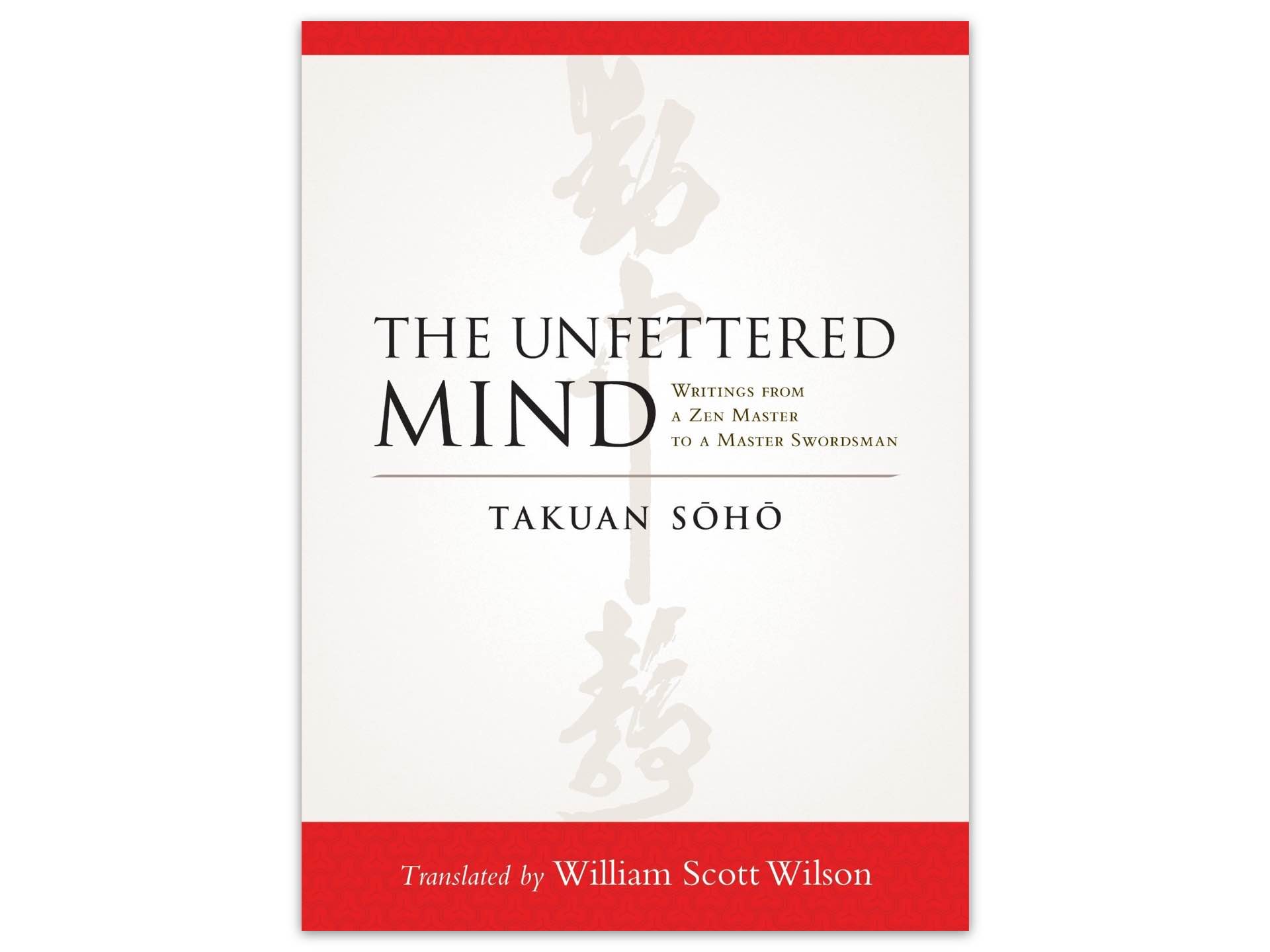‘The Unfettered Mind’ by Takuan Sōhō, Translated by William Scott Wilson
“If you would know a man’s good and evil points, you should know the underlings and retainers he loves and employs, and the friends with whom he mixes intimately. If the [person] is not correct, none of his friends and retainers will be correct.”—Takuan Sōhō, The Unfettered Mind
If you’ve read a bunch of books on Zen, meditation, mindfulness, etc. and feel like you’re ready to move up to a more advanced level, I suggest The Unfettered Mind: Writings of the Zen Master to the Sword Master, written in the 17th century by Japanese monk Takuan Sōhō specifically as a guide to swordsman Yagyū Munenori:
This classic samurai-era text fused Japanese swordsmanship with Zen and influenced the direction that the art has taken ever since. Written by the seventeenth-century Zen master Takuan Sōhō (1573–1645), The Unfettered Mind is a book of advice on swordsmanship and the cultivation of right mind and intention. It was written as a guide for the samurai Yagyu Munenori, who was a great swordsman and rival to the legendary Miyamoto Musashi.
Takuan was a giant in the history of Zen; he was also a gardener, calligrapher, poet, author, adviser to samurai and shoguns, and a pivotal figure in Zen painting. He was known for his brilliance and acerbic wit. In these succinct and pointed essays, Takuan is concerned primarily with understanding and refining the mind—both generally and when faced with conflict. The Unfettered Mind was a major influence on the classic manifestos on swordsmanship that came after it, including Miyamoto Musashi’s Book of Five Rings and Yagyu Munenori’s Life-Giving Sword.
The work is separated into three essays, the first of which — “The Mysterious Record of Immovable Wisdom” — is the most interesting and is still studied by martial artists today. It ties together the teachings of Zen Buddhism with those of swordsmanship, with lessons on clearing one’s mind, concentrating on nothing and not allowing your thoughts to become entangled, which would be disastrous in combat.
As it was written hundreds of years ago from one master to another, I would NOT call this an introductory text on Zen or swordsmanship. There are cultural cues and pieces of context that a modern Westerner won’t necessarily be privy to, which can make the text a bit arcane at times. But there are many gold nuggets of wisdom to be unearthed in here, if you have the diligence to find, understand, and above all, practice them.
Get the book in these formats:
- Kindle ($15)
- Apple Books ($15)
- Hardcover ($18)
- Paperback ($16)
- Audible audiobook ($4)
- MP3 CD ($14)
